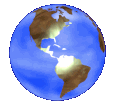|
|
Student Research in
Energy Systems
updated 4.Apr.2005
|
|
Each student will plan a research project in fall quarter
and carry it out in winter quarter, with one or two classmates. You
may continue research projects into spring as a group contract.
RESEARCH ASSIGNMENTS
AND PLANNING ON WebX contains folders where you will post all your
research assignments online.
|
Tues.29.Feb.2005: Final research reports in homeroom.
- Please bring two copies of your handouts/slides, one
for your prof to write feedback on, and one for her to keep.
- Load your presentation into our program
folder in the CAL beforehand, so you can upload it onto
the computer in the classroom (CD drive does not work on our
laptop, and external devices may not read). You can access the
CAL from on campus
or off
campus.
- and/or - email Zita
the URL to your web page by Monday, and she will link it here.
- Arrive early or on time, ready to give classmates your full
attention.
1:00 Introductions & Logistics
1:15 Housing
Energy Awareness Team, Robin & Mark
1:45 Efficiency of Sem II vs Library
buildings, by Derik Archibald and Brennon Murphy (Lara Boyd)
2:15 Lord Kelvin's water drop
generator, by Alfred Sturges
2:45 Piezoelectric Power, by
David Hanson and Miles Brouard
3:15 Living Machine, by Laura
Llewellyn
3:45 Sound
waves from the Northern Lights, by Jada Maxwell
fall: Solar
Powered Desalination
4:15 Discuss spring quarter and final exam
|
Thus. 10.Feb.2005: Research presentations at the Sustainable
Living Conference, in LIB 1000
1:15 Introduction to Energy Systems research projects, by Dr. E.J.
Zita
1:20 Sound waves from the Northern Lights, by Jada Maxwell
1:40 Piezoelectric Power, by David Hanson and Miles Brouard
2:00 Lord Kelvin's water drop generator, by Alfred Sturges
2:20 Sustainability indicators in campus buildings, by Derik Archibald,
Lara Boyd, and Brennon Murphy
2:40 HEAT: Housing Energy Awareness Team, by Robin Fenske and Mark
Retzlaff
Saturday 12 Feb. at the Organic Farm:
1:00-3:00 Living Machine, by Laura Llewellyn
|
|
Tues. 30 Nov 2004 Research Plans: 15 minutes
each, with 5 minutes for questions and feedback
| 1:00 Announcements & questions |
2:45-3:00 break |
| 1:10 Robin & Mark - HEAT |
3:00 Michael + David + Miles - crystals |
| 1:30 Tiffany & Lew - Living Machine |
3:20 Derik + Weston + Lara + Brennon - sustainability |
| 1:50 Jeff & Devyn - Solar-powered desalination |
3:40 Alfred - electricity generation from the
atmosphere |
| 2:10 Jada - Aurorae |
4:00 Eric - windmills |
| 2:30 JJ - Thermal PV cells |
4:30 Nanako - eco cars |
|
Fall: Your research project
will be an active investigation of a real question about a topic
or area of interest to you. While a literature review is one important
step as you articulate your research question, your project will go
far beyond a book report. You will read journal articles in fall, and
evaluate and summarize them in your Annotated Bibliography. While learning
what is known in your field is an important prerequisite, your goal
is to articulate, and try to answer, a truly open question. Scientific
investigations are motivated by questions, and are guided by working
hypotheses. Once you have articulated your research question and
several plausible, testable hypotheses, you will design ways to investigate
competing hypotheses. You will finish a Research Proposal
fall midquarter (with your team's question, hypotheses, and annotated
bibliography), and a Research
Plan (with proposed investigations) by the end of fall quarter.
Winter: Your investigations will
be carried out in winter quarter, and may consist of laboratory
experiments, measurements of your environment, and/or other activities
- but not just reading. You will gather data and do calculations as
part of your research. You will present a midquarter report as part
of the Sustainability Conference on Thus.10.Feb.2005. You will present
the results of your investigation at the end of winter quarter. It is
common in scientific research to find that the answer to your question
was none of your working hypotheses, but something new. This is discovery.
Spring: If you want
to continue your investigations in more depth in spring
quarter, you may do this in a group Energy Systems contract. This could
involve an internship sponsored by your faculty. Perhaps a state agency
or local business can use your expertise to answer their energy-related
questions. You would make contacts in fall and winter, and plan your
spring activities in winter. At the end of winter quarter, you would
present, in addition to your research presentation, a formal proposal
for your spring work. Such concentrated student research work can be a
peak learning experience in your college career, and a springboard to
future employment.
General: You should
do your research in small teams. Three is an ideal size.
You are strongly encouraged to attend Writing
Center workshops throughout the quarter. Follow our program essay
guidelines as appropriate, especially the one about never turning
in a first draft.
Here are some student research pages from previous programs: Physics of Astronomy,
Physical Systems,
Energy Systems,
and Matter and Motion
Fall Goals:
* Identify possible research topics of interest
* Learn to search for scientific articles in the library
* Find review articles to identify outstanding questions and good
resources
* Skim many articles in your area of interest, and read the best ones
carefully
* Articulate a research question
* Produce an annotated bibliography of research articles
* Propose research to carry out in spring to investigate your question
weeks 1-4: Discuss topics of
active research in energy systems and sustainability, in the context of
lectures, seminars, and workshops. Begin reading journal articles. Week
2: Library research workshop #1.
Week 4: Workshop on Questions
& Hypotheses.
DUE Friday week 4: create a folder for your team on WebX, and
articulate your Research Question and Hypotheses.
week 5: Library research workshop # 2. Library
resources and NASA ADS
service.
Using Your Sources workshop in the Writing
Center. Please read
this webpage and linked workshop
beforehand.
DUE Thursday week 5: your team's Research
Proposal, posted on WebX and presented in class.
week 6-8: Now that you have chosen your
research question, how can you investigate it? What activities
or experiments can you undertake in winter? Explore options, and
post ideas to your WebX folder. Start writing up a Research Plan
with Annotated Bibliography.
week 9: Present your final Research
Plan in class, post it on WebX, and give
your prof a hardcopy. Include:
* Your topic, and what motivates your interest (1-2 paragraphs)
* your Research question(s)
* at least 3 hypotheses for each question (primary, alternative,
and null hypotheses)
* Literature review on your question: who else is working
on this, and what do they think about it?
* Strategies for investigating your question, including hands-on
tests and quantitative analyses
* Plan of activities for winter quarter
* Annotated bibliography
You will probably need about 5 pages (Word document) or 12-15
slides (Powerpoint) to clearly describe your Research Plan, and
3-5 pages (Word) for your annotated bibliography.
Week 10-11: You have no class, so use
this time to finish fall planning.
* write a timeline for your proposed winter work
* start getting resources in place, e.g. ordering equipment from
Lab Stores
* read your most important resources thoroughly, and start integrating
their information into your plans
An annotated bibliography includes the
full bibliographic reference for each source, plus a few
sentences about the content, scope, reliability,
and usefulness (to you) of each source.
|
|
CANDIDATE RESEARCH
PROJECTS:
Perhaps you would like to plan and/or build a solar panel, biofuel
processor, windmill, or other alternative energy technology for
use on campus.
Perhaps you would like to work with a green business downtown
or state office to help them with one of their projects.
Perhaps you have ideas and questions of your own. Here are some
new projects that may welcome student involvement. Perhaps you
know of other projects where you could help out, and meet some
of your learning goals in the process.
On the Evergreen Campus: Measure Sustainability
Indicators, such as how much energy we use, where it goes,
and how Evergreen could be Greener. The Campus Engineer, Rich
Davis of Facilities, will talk with us about energy waste and
potential for improvement at Evergreen. Facilities technician
Patty VanDeWalker will tell us about energy measurements she makes
on campus: electrical, water, and steam. Josh Skov, a Greener
grad now running his own Good
Company to measure sustainability indicators, may be available
to advise us on how to analyze data such as Patty's. Karen Purtee,
management analyst with the WA
State Energy Team, may be available to advise us on how to
use our data analyses to recommend improvements at Evergreen,
as her team does for other state buildings.
On the Evergreen Campus: Solar Panels on the Library?
Leon Smith, a Greener grad who manages Climate
Solutions at the Energy Center in downtown Olympia, is discussing
with Evergreen administrators the possibility of installing solar
panels on an Evergreen building. The Library is just beginning
its remodel project. Might it make sense to include solar panels
on the roof of this or another building? Do we get enough solar
radiation to make it worthwhile? There is already a solar radiometer
as part of the weather station on the roof of Lab II. Perhaps
you could analyze the solar radiation data to help Leon evaluate
the feasibility of this idea. Brad Bassett, who manages a local
company that provides solar panels and designs, may be available
to provide specs and advice.
On the Evergreen Campus: Is SEM II meeting its green goals?
The new SEM II building was built to maximize energy efficiency,
using green technologies and sustainable practices. Nancy Johns
in Facilities is gathering data on SEM II to see to what extent
we are meeting our LEEDS goals. You may be able to help study
our flagship green building.
Off campus: A local construction manager and Greener grad, alum
of both Energy Systems and Physical Systems, Dan Neelands, has
received approval from HUD to exceed the usual approved cost of
low-income housing by 10% to include energy-efficient and
sustainable design features. Check out the Green Building Council
of Portland and Shell Solar, which makes photovoltaic (PV) cells
in Portland.
|
|
CANDIDATE FIELD TRIPS:
Students are invited to help plan field trips to
locations such as these, if you are interested. Winter is a good
time for field trips, to combat cabin fever.
Evergreen's Facilities tunnels and power plant contain
impressive systems for controlling the flow of energy, heat, water,
steam, and more. See giant fans, generators, transformers, and
more. How can these systems be improved to save energy?
Climate
Solutions, downtown Olympia, has models of straw-bale construction,
solar cells, and many other green or sustainable technologies.
Centralia
Coal Plant provides an inside view of one of the most important
current technologies for electricity generation.
Bonneville
Dam used to be a great place to witness the conversion of
gravitational potential energy, via water flow, into megawatts
of electric energy. But security has been tight since 11.Sept.2001.
Do you know of a hydro plant we can tour inside?
The State Legislature Building is installing solar
panels on its roof. (Karen Purtee)
There are many green houses in the Evergreen area,
e.g. those on the Solar
Homes Tour.
Other ideas? Please bring them up in class!
|
|
RESEARCH RESOURCES
Let's coordinate our communications with these generous people,
to make efficient use of their time. Please talk with Zita and/or
your research team before calling.
Climate Solutions
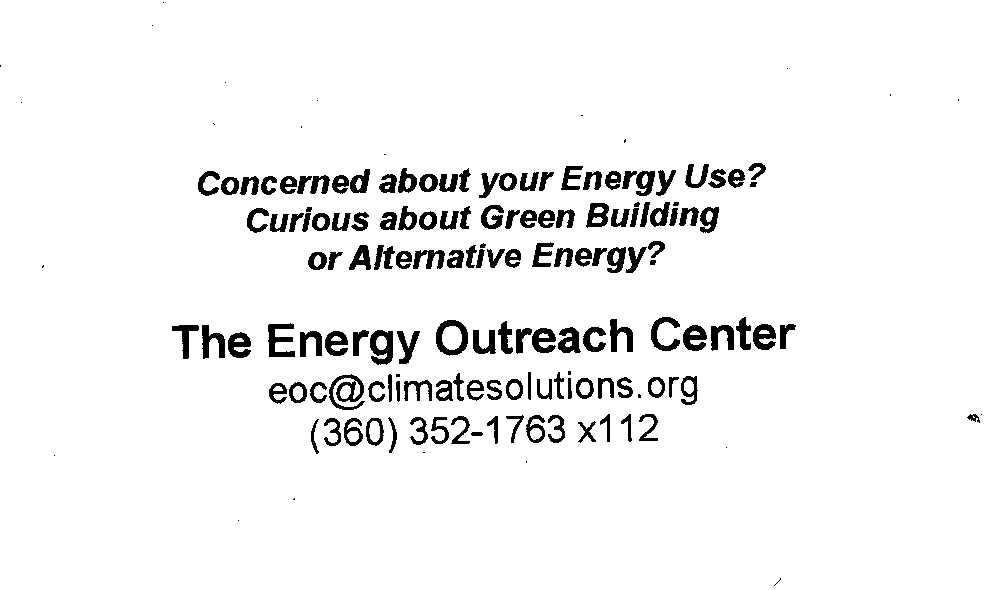 |
Karen Purtee
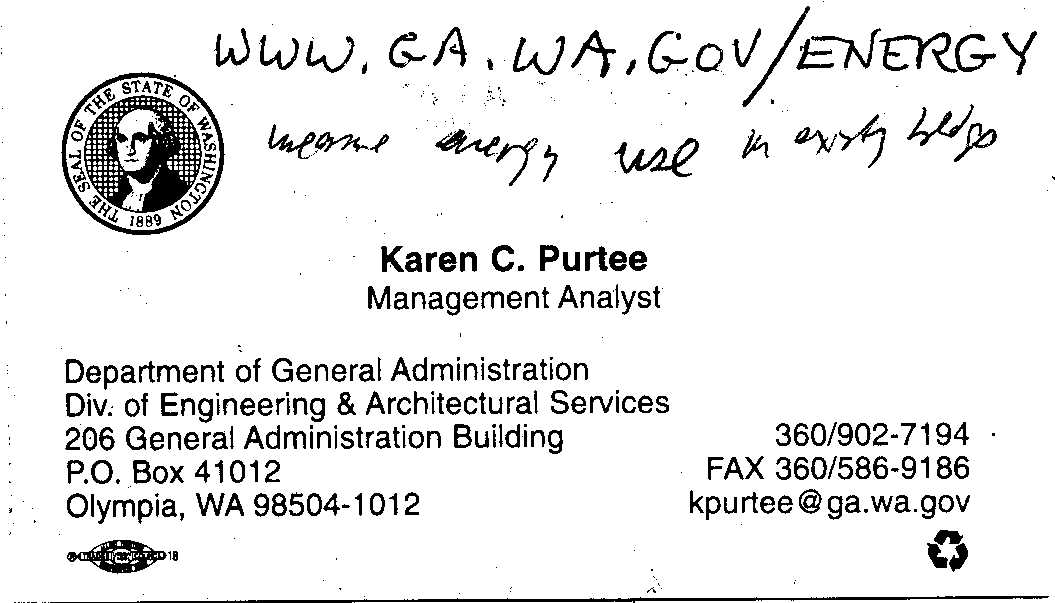
|
Facilities
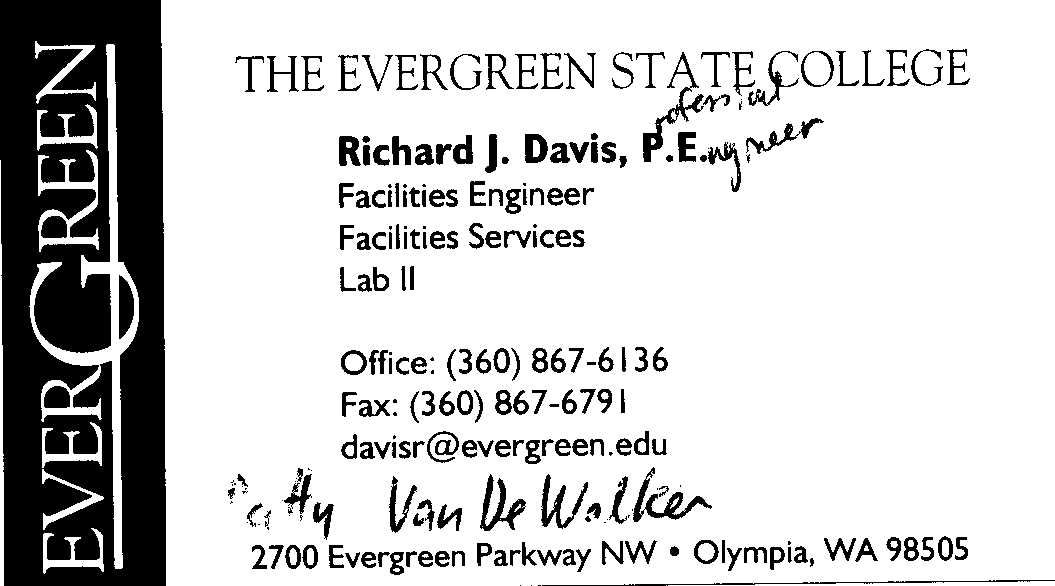 |
Dan Neelands
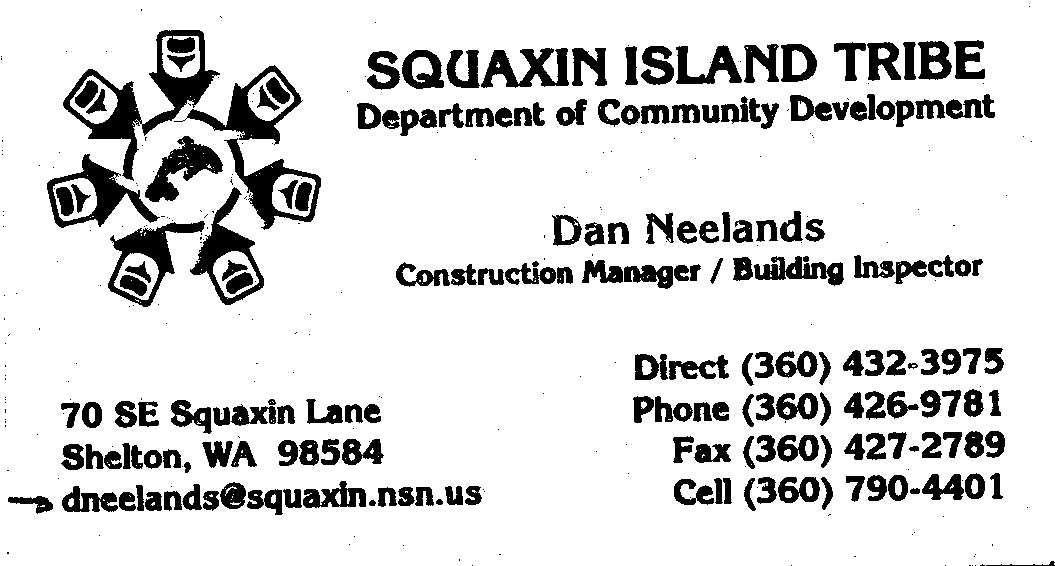
|
Brad Bassett
 |
 |
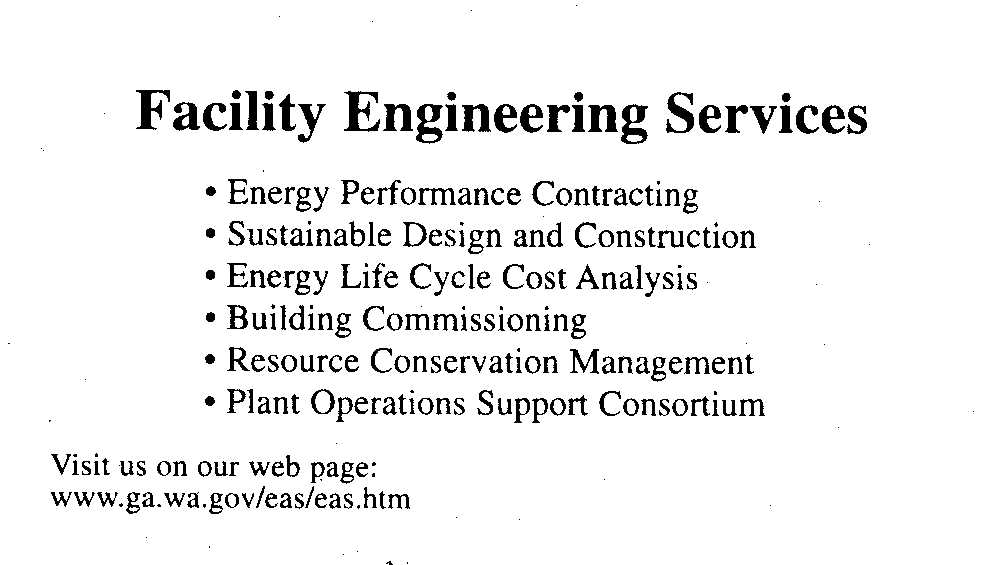 |
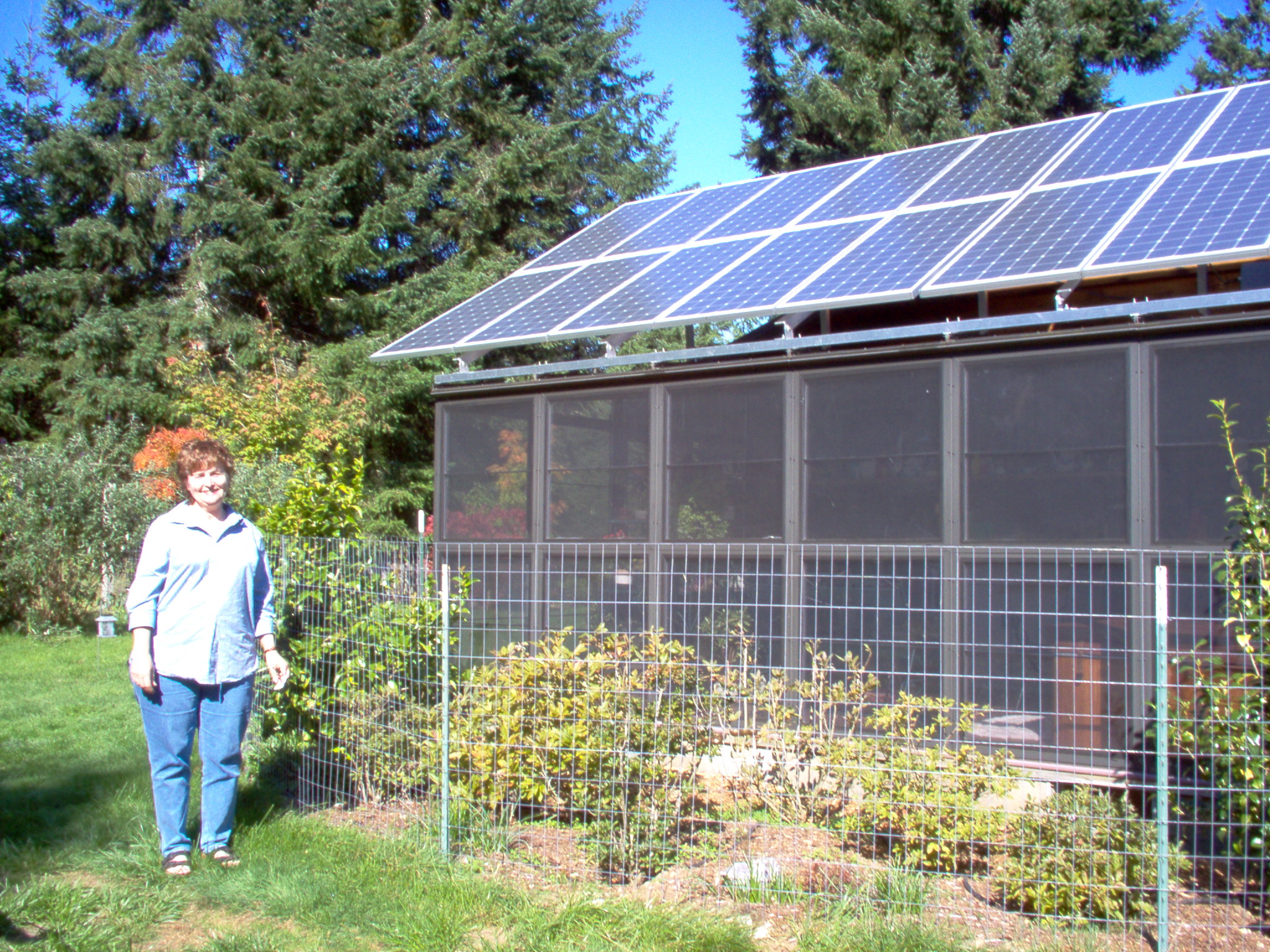 |
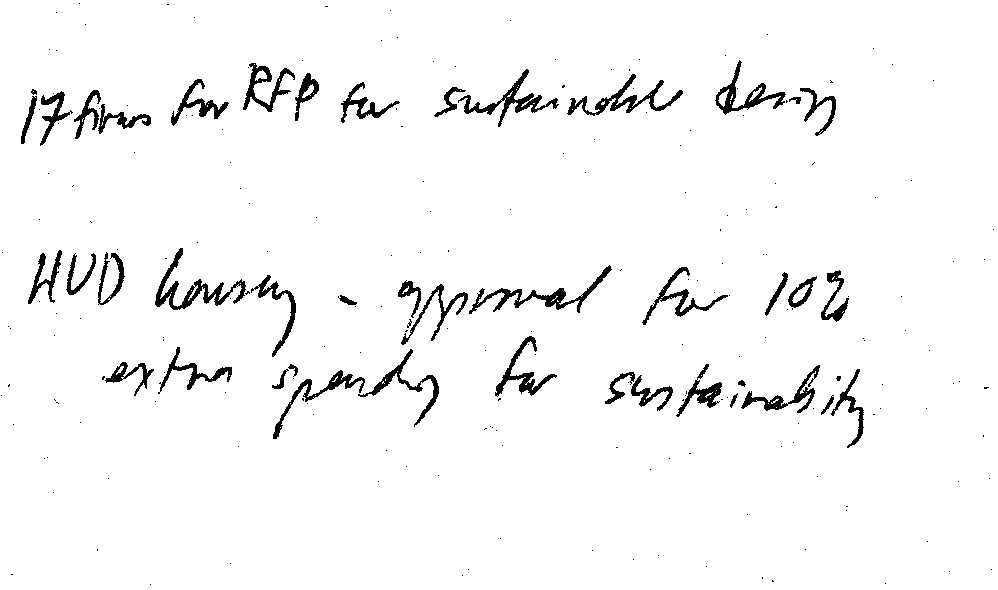 |
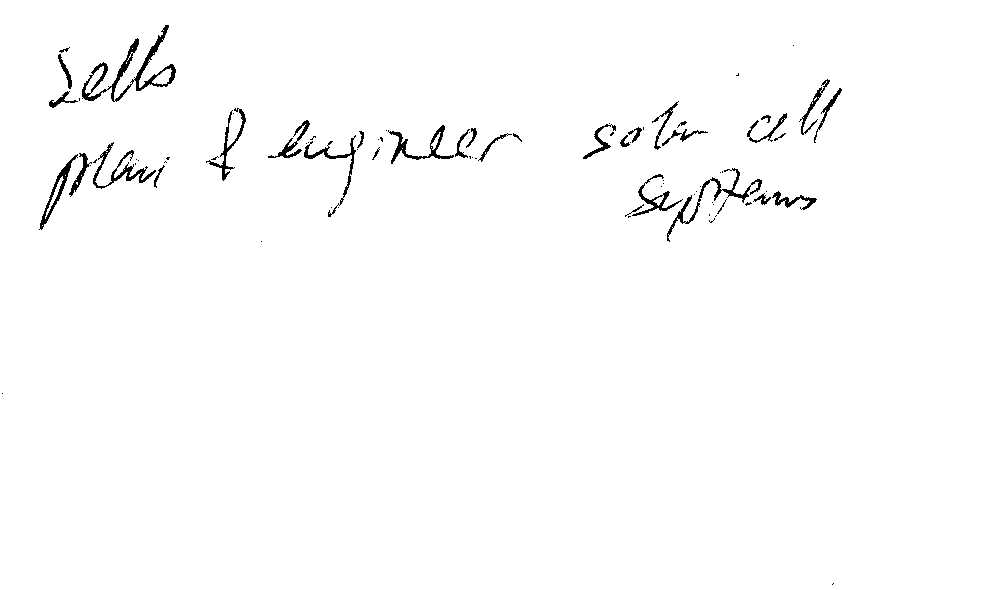 |
Additional resources (such as Good Company) are
available at our Sustainability
webpage.
www.solarwashington.org
- Pamela Burton - info@solarwashington.org 206-222-7113
Puget Sound Energy offers rebates for installation
of solar photovoltaic systems - Energy Advisors 1-800-562-1482
www.eere.energy.gov/power/consumer
www.nrel.gov/ncpv/ncpv.html
www.fsec.ucf.edu/pvt
Fall midquarter proposals:
5 minutes each, with 5 minutes for questions and feedback
| 1:10 Eric - Windmills |
2:30 Nanako - Eco-cars |
| 1:20 Tiffany H + Lew - Farm |
2:40 Weston |
| 1:30 Jeremiah - ? |
2:50 Miles + Dave - Piezoelectrics/thermoelectrics |
| 1:40 Robin + Mark - HEAT |
3:00 Devyn + Jeff - solar-powered desalination plant |
| 1:50 Michael |
3:10 Jada - Aurorae |
| 2:00 Lara - sustainability on campus |
3:20 Alfred - ? |
| 2:10 Break |
3:30 break |
|
|
